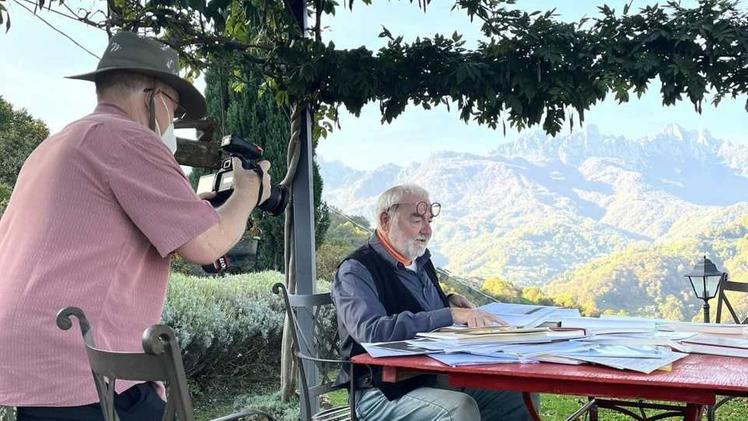It's not out of nostalgic sentimentality that American director Larry Foley decided to travel from the United States to shoot some scenes of "Cries from the Cotton Field" in Recoaro Terme and other areas of Italy. Instead, his aim is to tell an incredible story. Set between the late 19th and early 20th centuries, the film highlights the tale of some emigrants from Recoaro, Valli del Pasubio, and the Forlì-born Jesuit Pietro Bandini (1852-1917), who later settled in Little Rock, USA. The trailer for the documentary film has recently been released in the US, based on the book "In America voglio andare" (Almanacco Editore, 2004) by the Forlì historian Paolo Poponessi, which tells the adventurous life of the priest who, in the latter part of his life, founded the town of Tontitown in 1898 in Arkansas, which still exists today.
But there's much more to the story: the epic journey of a significant number of Italian emigrants from the Marche, Emilia Romagna, and Veneto regions. Scenes were filmed between Recoaro and Valli a year ago, with American director Foley being assisted by Luciano Caleffi from Recoaro, who co-authored the book "Terra promessa. Il sogno americano degli emigranti di Recoaro e Valli dei Signori alla fine dell'800" (Promised Land: The American Dream of the Emigrants from Recoaro and Valli dei Signori at the End of the 19th Century) alongside historian Giorgio Trivelli.
"The Recoarans who embarked for America were many, but the central episode of the film revolves around perhaps the cruelest and most inhumane experiences of those years," recounts Caleffi. "Women, men, the elderly, and children set off for the cotton fields along the banks of the Missouri," he explains. "They knew they had to work on plantations owned by a wealthy American industrialist who sought labor from Italy because he knew they were skilled workers. In fact, the immigrants were promised their own piece of land to cultivate. However, upon arrival, they faced two emergencies: the first being the mosquitoes, which they had never seen before and therefore didn't know how to protect themselves from malaria, and secondly, the water taken from the river was not drinkable. So, diseases and much more. They were of tough character and endured until the arrival of Father Bandini in the fields."
With the priest, they set out to find other lands to cultivate, but the fields were for the women, the elderly, and the children, as the men went to work in the mines of Wyoming, specifically in Cambria, to earn more money. Eventually, they became vine growers and managed to prosper. "The Vicentinian heritage of the places populated by the settlers led by Father Bandini is present and palpable," adds Caleffi, who recently returned from America. "It can be seen in the cemeteries, observing typical Vicentinian surnames with the inscription 'born in Recoaro or born in Staro or Valli del Pasubio.' But it's also evident in the festivals where for over 120 years, Vicenza-style polenta has been served. Not to mention the toponymy of the town of Tontitown, where there are streets named 'Pianalto Road' or squares named 'Piazza Sbanotto,' or you can still visit historic homes belonging to the Ceola or Bariola families built in the early 20th century."
Needless to say, the release of the film, expected in Italy towards the end of the year, is eagerly awaited by the descendants who still live in Recoaro and Valli. The museum in Rosati, Missouri, along the famous Route 66, where many protagonists of the story that inspired the film emigrated, has requested a series of photos of the places where Recoaro residents lived before departing. The film's production is also being followed in Buenos Aires, where children of other emigrants have shown interest in the story to the extent that "Nueva Italia," a well-known Argentine radio station linked to the Dante Alighieri Society, has produced an episode interviewing Luciano Caleffi.
(GdV, giovedì 21 marzo)


